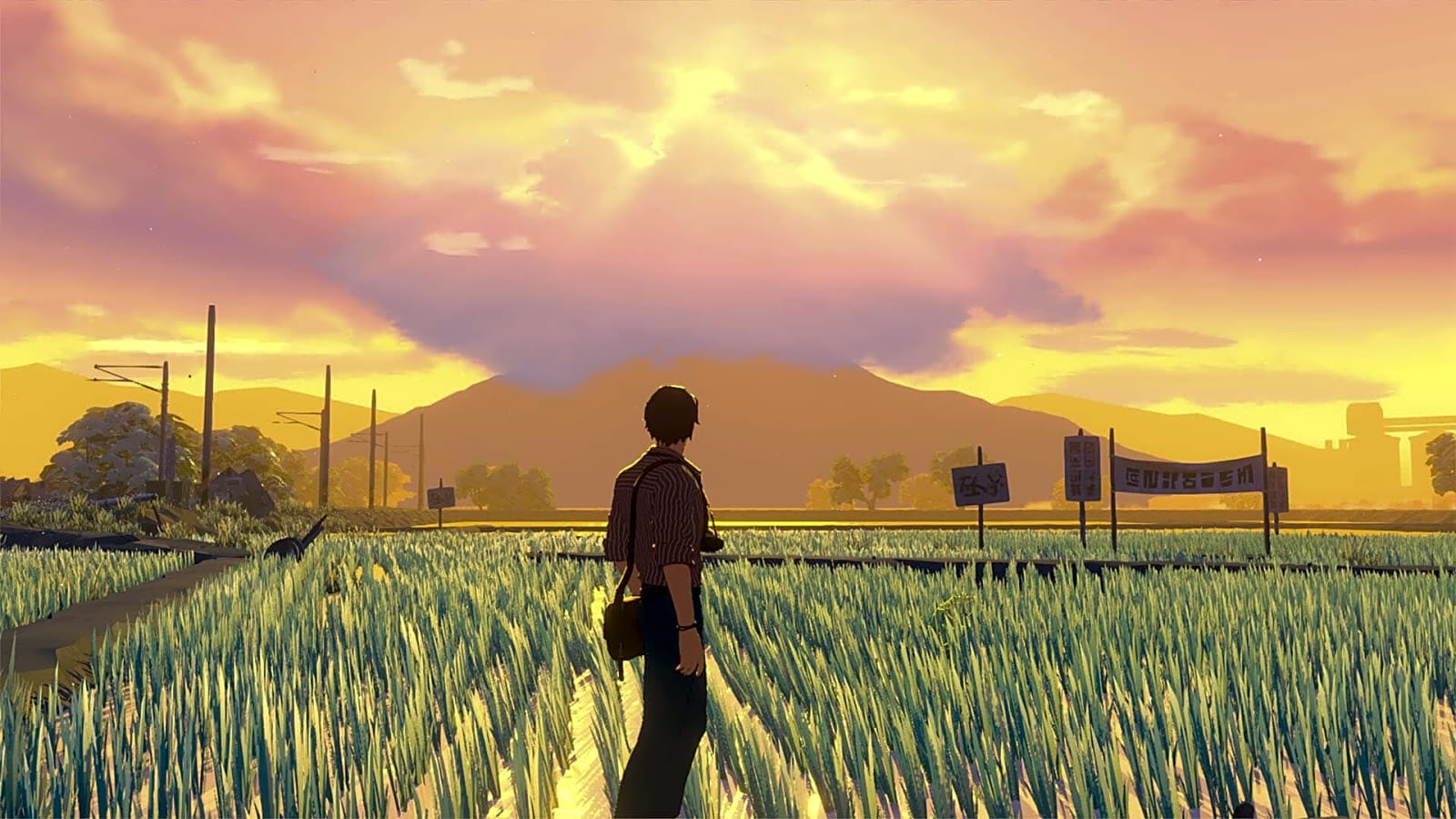
Let’s get one thing straight: every indie game that slaps on a pastel palette and throws in a talking animal thinks it’s channeling Studio Ghibli. Most of them? Not even close. But Opus Prism Peak, the latest from Taiwanese developer SIGONO, might be the rare exception that actually earns the comparison.
This isn’t just another “soft colors + cryptic dialogue = Ghibli” formula. It’s a slow, dreamy photography puzzler that feels like someone bottled up bittersweet nostalgia and turned it into gameplay. And somehow, it works.
A Photographer, a Lost World, and a Lot of Feelings
You play as Eugene, a middle-aged photographer whose life has been gently falling apart for a while now. Failed ventures, fading friendships, and a childhood colored by parental arguments—he’s not exactly thriving. But then he wakes up in the Dusklands, a surreal fantasy realm that’s equal parts beautiful and broken.
He’s not alone. Enter Ren, a chirpy young girl who’s basically sunshine in human form. Together, they explore this ethereal world, solving puzzles and snapping photos that unlock memories, lore, and occasionally, magical vending machines. It’s part escape room, part emotional therapy session, and all wrapped in a hand-drawn art style that’s quietly stunning.
Photography as Puzzle-Solving—And Emotional Catharsis
The core mechanic is simple: take pictures of stuff. Murals, train tracks, ghost dogs, vending machines—if it exists, you can probably photograph it. These snapshots aren’t just collectibles; they’re keys.
Firebowls scattered throughout the Dusklands let you burn seeds to unlock consumables or solve riddles using your photos. A cryptic prompt like “reminder of better times” might be solved with a shot of flowers. “Something mechanical”? Try the vending machine. It’s not exactly brain surgery, but it’s satisfying in a quiet, meditative way.
The Ghibli Vibes Are More Than Skin Deep
Most games borrow Ghibli’s aesthetic. Opus Prism Peak borrows its soul. The world feels lived-in, layered with melancholy and wonder. There’s a softness to the visuals, yes—but also a sadness that lingers beneath the surface.
It’s not just about whimsical creatures and lush forests. It’s about mood. About pacing. About letting players sit with their feelings instead of rushing to the next objective. It’s Spirited Away meets a photojournalist’s dreamscape, and it’s kind of magical.
SIGONO’s Quiet Mastery of Emotional Storytelling
If you’ve played Opus Echo of Starsong or The Day We Found Earth, you already know SIGONO doesn’t mess around when it comes to emotional storytelling. They’ve carved out a niche for intimate, sci-fi-adjacent narratives that hit harder than expected.
Prism Peak feels like a natural evolution. It’s slower, more grounded, and deeply personal. There’s no combat. No boss fights. Just exploration, photography, and a gentle unraveling of Eugene’s past. It’s the kind of game that sneaks up on you emotionally, then refuses to let go.
No Release Date Yet—But the Demo Speaks Volumes
The demo is short—just 30 minutes—but it’s enough to get hooked. The puzzles are intuitive, the art direction is gorgeous, and the emotional tone is pitch-perfect. SIGONO hasn’t announced a release date yet, but it’s slated for Fall 2025.
If the full game delivers even half of what the demo promises, Prism Peak won’t just be another indie darling—it’ll be a masterclass in mood-driven design.
Opus Prism Peak is shaping up to be one of those rare games that doesn’t just look beautiful—it feels beautiful. It’s quiet, strange, and emotionally resonant in a way most games wouldn’t dare attempt. And if it sticks the landing, it might just be the closest thing we’ve had to a playable Ghibli film.
So yeah, I’m already emotionally compromised. And I haven’t even seen the ending yet.
More must-reads:
- Ravens sign two-time Pro Bowl safety to four-year extension
- 49ers to sign two-time Super Bowl champion WR
- The 'NFL sack leaders since 2015' quiz
Breaking News
Trending News
Customize Your Newsletter
 +
+
Get the latest news and rumors, customized to your favorite sports and teams. Emailed daily. Always free!








